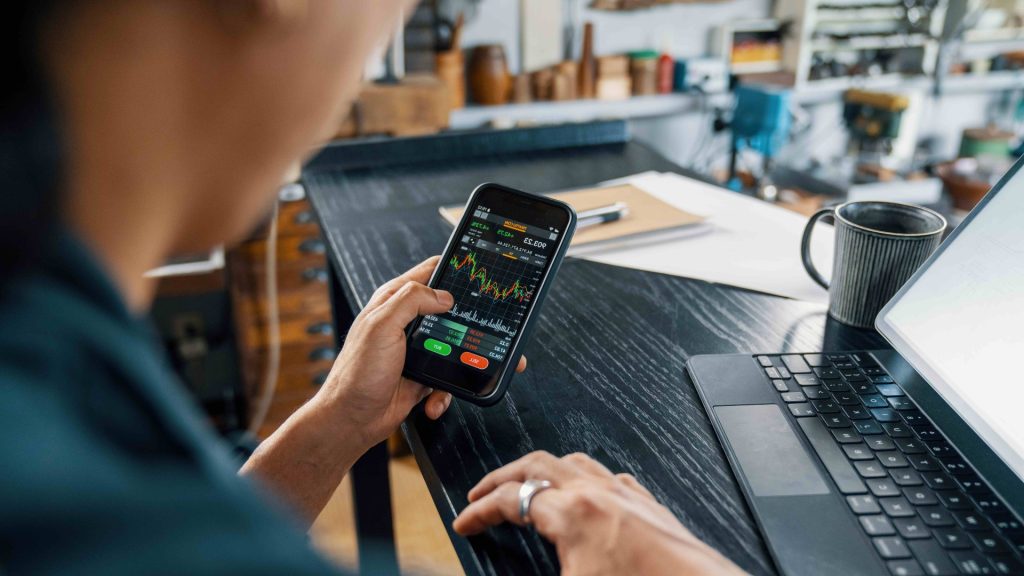Considerations for businesses operating in the metaverse

While trying to fathom pricing in the metaverse may feel like we’re getting ahead of ourselves, the future is closer than you think. In fact, with technology developing at an astonishingly fast pace, businesses need to understand what working with and in the metaverse will look like and consider how it will affect their pricing, taxes, and other financial concerns.
But what exactly are the tax and accounting implications arising from the metaverse? For that matter, what exactly is the metaverse? Here’s everything you need to know to keep your business up-to-date.
How does commerce work in the metaverse?
While it may seem like a very new concept the metaverse has been an evolving technology for some time. It is, essentially, the convergence of top trends and technologies, including digital identity, virtual reality (VR), and digital assets adoption.
The metaverse takes the cutting edge in technological advancements, plus some long-standing tech, to create a different way of interacting with the world. For example, through the use of a VR headset, you might visit the office of a new business partner on the other side of the world. While there you can shake hands with all their top people, take a tour of their facilities, and get to know how they work, all without leaving your own office.
Assets on the metaverse
With total real estate sales in the metaverse reaching over $500m in 2021, and are estimated to have neared $1bn in 2022, it’s clear that the world is as obsessed with material possessions in the digital sphere as they are in the real world.
Sales of land and property in the digital worlds are increasing at a seemingly exponential rate — the cheapest piece of ‘land’ reportedly went for around $10,000 (£8,000) last year, while one anonymous NFT token collector reportedly shelled out $450,000 (£360,000) to become Snoop Dogg’s virtual neighbor in The Sandbox.
With the likes of Gucci, Adidas, and Balenciaga releasing virtual clothing lines, while restaurants and other food service providers have begun to invest in the virtual sphere, it’s likely we’ll be able to have a virtual shopping or dining experience inside the Metaverse sooner than we thing. Shoppers can experience a virtual store or restaurant while their food and products are delivered to them in the real world.
Transactions on the metaverse
The current currency of the metaverse is primarily virtual currencies tying customers into the metaverse ecosystem. This works in a similar way to in-game credits, where a game has a particular form of currency (token, coins, diamonds, etc.) which you purchase using real-world currency. Once you have made your purchase, your regular currency is converted to whatever is used in-game, and you can conduct transactions and purchases as you would normally.
The metaverse has its own bespoke currencies which function in the same way and allow you to transact virtually within the metaverse.
Tax jurisdiction in the metaverse
You’d be forgiven for assuming that transactions taking place within the metaverse are exempt from tax, on the grounds that they do not take place in a specific country and therefore do not fall under any tax authority’s jurisdiction. This is, however, not the case. Tax authorities still hold primary taxing rights to cover transactions conducted in the metaverse. Current tax rules for any transactions will be applied according to the tax residency of the transacting parties in the real world.
The challenge will be determining which jurisdictions have a right to tax digital transactions, along with the more complex - and evolving - questions surrounding the cryptocurrencies being used to purchase digital assets, and their tax treatment. The digital economy is already complicated, yet the rate at which the metaverse is being adopted is likely to exacerbate any existing issues and areas of uncertainty experienced by the market.
For example, in October 2021, Ariana Grande broadcast a multi-day “tour” via the Fortnite platform. Approximately 78 million viewers tuned in worldwide, all paying a fee, with Grande reportedly grossing over $20 million through tickets and merchandise sales. The question of who has the right to tax activity of this nature, and whether it falls under the jurisdiction of the location in which Grande performed, or the individual locations of each audience member, has yet to be determined.
Additional questions that, as yet, have no resolution include whether certain transactions are subject to VAT, or whether they count as bartering transactions, which would result in income-based (capital gains) tax.
How to structure and account for payments in the metaverse
To look for ways to structure and account for payments in the metaverse, we need to look back on how we responded to the 1990s dot-com phenomenon and the subsequent effect it had on the global economy. Similar challenges were faced when we encountered the original new digital frontier, and historically, jurisdictions were reluctant to draft new legislation. Instead, solutions were found in existing concepts and tax frameworks that were flexed to cover the needs of emerging digital activities. Any legislative gaps that remained were discretely plugged.
It is likely that similar solutions will be needed to establish new ‘new norms’ now the digital sphere has evolved once more. Beyond this, the metaverse itself may hold the key to solving issues regarding tax, payments, and accounting. The rise of cryptocurrency and blockchain technology has led to the popularisation of decentralized autonomous organizations (DAOs), which are an emerging type of legal structure without any central governing body, whose members have a common goal driving them to act in the best interests of their organization.
While the metaverse itself is decentralized and provides a pseudo-anonymous and unregulated environment, blockchain — and by extension cryptocurrencies — are inherently transparent and tamper-proof. Blockchain offers the opportunity for real-time tax reporting solutions, automatically sharing transaction information as they’re happening with tax authorities and eliminating the reporting process.
The question is, how do we deal with tax and accounting for a DAO, when leadership is by the vote of every member, memberships are in the tens of thousands, and those members are all online users scattered across the world, often only identified by their gamer names or online handles?
These issues are likely to be further exacerbated by tax authorities who are slow to issue guidance on taxation and accounting in the metaverse and in relation to cryptocurrencies and other emerging aspects of web3. As a result, these organizations and their advisors are left to structure global metaverse businesses based on the established regulations of more traditional industries that do not consider these newer concepts.
Are you ready for the new digital economy?
It’s evident that we are, once again, witnessing a historic shift in world economies, as tokenization (or Web3) evolves alongside the metaverse, bringing unprecedented exploration of digital frontiers.
Despite these drastic changes in the digital landscape it seems likely the answers to our questions concerning pricing and commerce in the virtual business sphere lie in our existing frameworks and understanding, coupled with a dedication to collaborating and cooperating with governing bodies and entities operating around the world.
If you’re in need of help navigating this new frontier, we can help. Get in touch today and one of our specialists will happily talk to you about how your business can embrace blockchain, Web3, and the metaverse.
Related content






